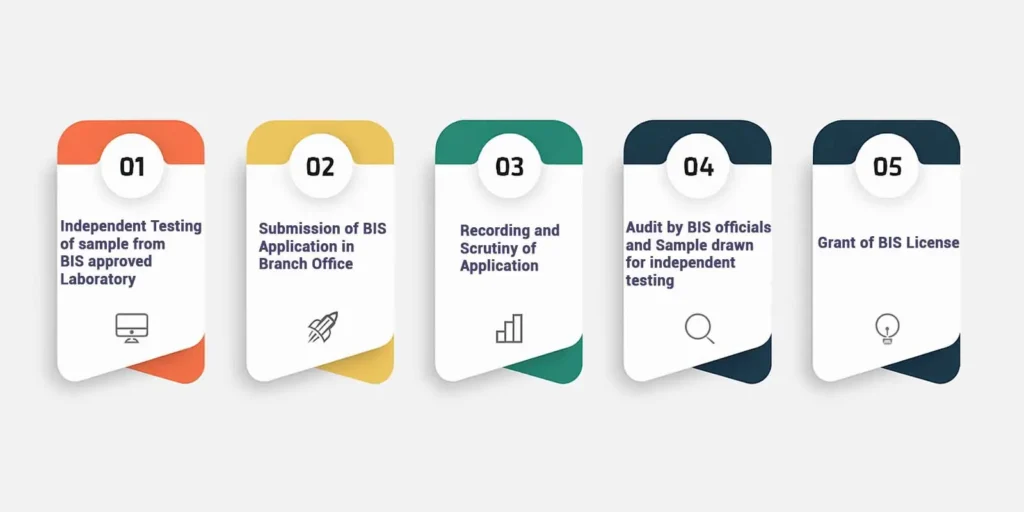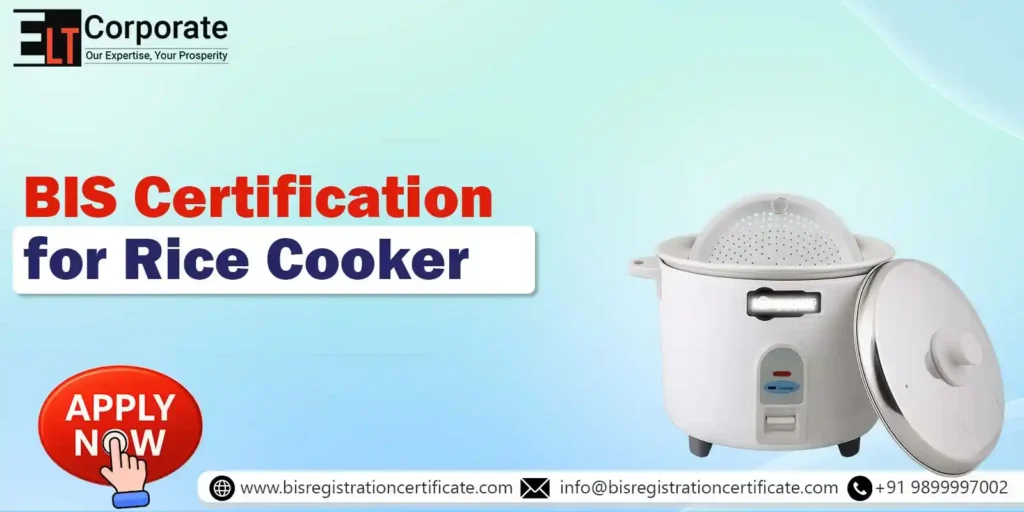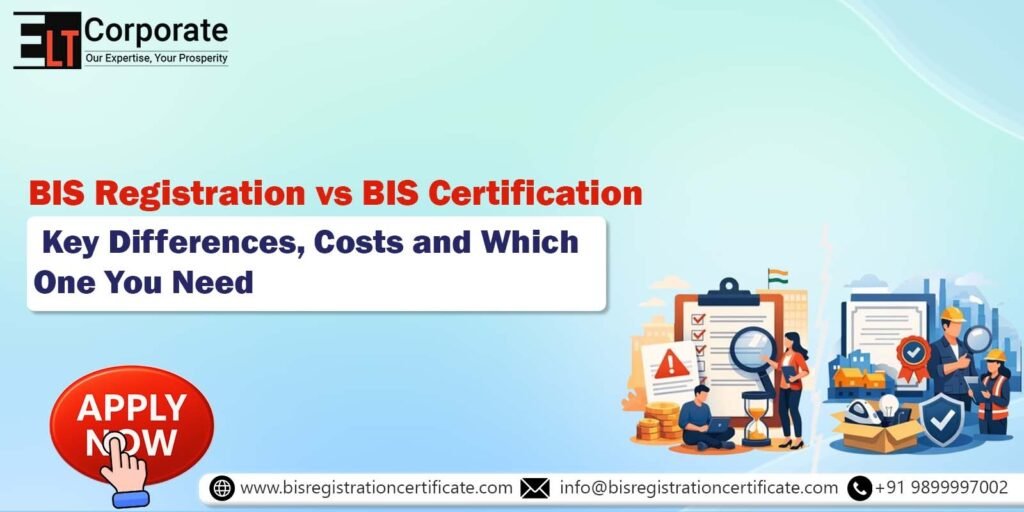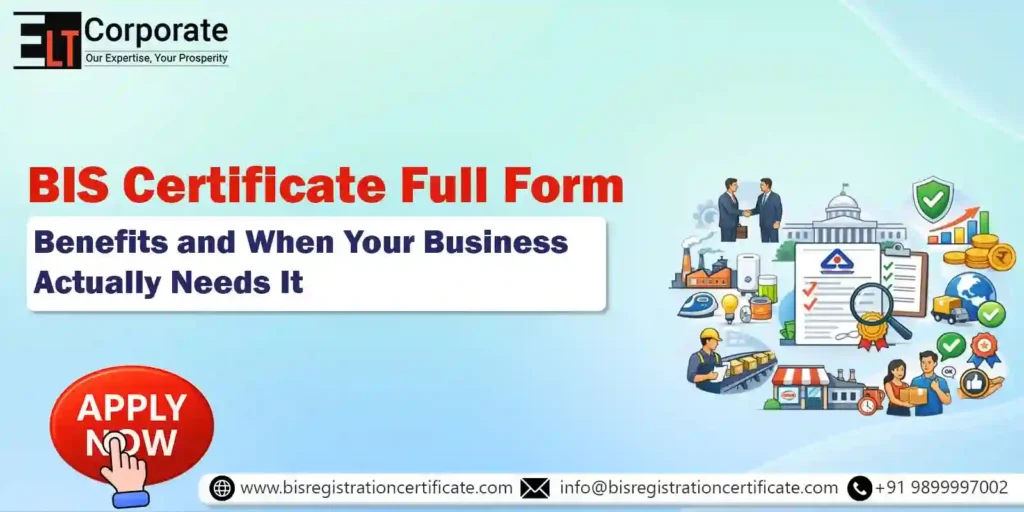Rice cookers have become an essential kitchen appliance in Indian homes, simplifying the process of cooking rice with the increasing demand for such electric appliance, ensuring safety and quality is more important than ever. To regulate this, the Bureau of Indian Standards has made it mandatory for rice cookers to be registered under its Compulsory Registration Scheme. This ensures that every rice cooker sold in India safety standards (IS 302-2-15). In this blog, we’ll walk you through the complete process, documentation, and benefits of obtaining a BIS Certificate for rice cookers-whether you’re a local manufacturer or an international importer.
What Is BIS Certification?
BIS Certification is a quality management system operated by the Bureau of Indian Standards, which is the national standards body of India. The system guarantees that the product conforms to Indian Standards with regard to safety, quality, and performance.
Whether BIS certification is voluntary or mandatory is determined by whether the product falls under a Quality Control Order (QCO). BIS certification is compulsory for car rims based on government notifications.
Read More: Introduction To Bureau Of Indian Standards
Is BIS Certification Mandatory for Rice Cookers?
Yes, as per the CRS of BIS, rice cookers fall under the list of notified products. Without BIS registration, you cannot manufacture, import, or sell rice cookers in India legally.
The application Indian Standard is:
- IS 302-2-15: Safety of household and similar electrical appliance-part 2: particular requirements for appliances for heating liquids.
Benefits of BIS Registration for Rice Cookers
Below, we mentioned some benefits of BIS Certificate for Rice Cookers:
- Legal approval to sell in Indian market
- Builds consumer trust and product credibility
- Ensures product safety and quality
- Avoid customer clearance delays and penalties
- Increases brand value and competitive advantage
Documents Required for BIS Certification
To apply for BIS certificate under CRS, the following documents are generally required:
- Business License (GST Certificate or Company Registretion)
- ISO 9001 Certificate (for foreign manufactures)
- Test Reports from BIS recognized Lab
- Product Manual or Technical Detailed
- Trademark Registretion (if applicable)
- Authorization Letter (if filing through an Indian representative)
- Factory location & Process Details
- BIS Appliaction From with Undertaking
Read More: Documents Required For BIS Registration

Step-By-Step Process for BIS Certification for Rice Cooker
Below we mentioned steps to obtain BIS Certificate for Rice Cooker:
Step 1: Product Testing: Get your rice cooker tested from a BIS-recognized lab as per IS 302-2-15 standard. The lab will issue a test report, valid for 90 days.
Step 2: Online Application on BIS Portal: Register on the BIS CRS Portal and submit all required documents and the test report.
Step 3: Application Scrutiny: BIS officers will scrutinize the application and may request clarifications or additional documents.
Step 4: Grant of Registration: Once approved, you will receive a BIS Registration Certificate with a unique R-number (e.g., R-41234567).
Step 5: Use of BIS Mark: You can now affix the Standard Mark (BIS logo) with the R-number on product labels and packaging.
Read More: Process for getting BIS for Certification
BIS Certification for Foreign Manufacture
Foreign brands must appoint an Authorized Indian Representive to file the application on their behalf.The process remains largely the same, but additional documents like AIR agreement and embassy attested declarations are required.
BIS Certification Fees for Rice Cooker
| Particular | Estimated Cost (INR) |
|---|---|
| Laboratory Testing | ₹25,000 – ₹40,000 |
| BIS Application Fee | ₹1,000 |
| Annual BIS License Fee | ₹1,000 |
| Professional / Consultant Fee | Varies |
Labelling Requirements
Every certified rice cooker must carry following details on its label:
- Product Name & Model
- Input Voltage/Frequency/Power
- BIS Standerds Mark with R-number
- Manufacture’s Name and Address
- Country of origin (for imported goods)
Penalties for Non-Compliance
If you sell a non-certified rice cooker in India, BIS can impose:
- Product seizure
- Penalty up to ₹2 lakh or more
- Ban on sale and legal action
How ELT Corporate Can Help
At ELT Corporate, we specialize in BIS Certification services for electronic products, including power banks. We offer:
- End-to-end application support
- Testing coordination with BIS labs
- Documentation & portal filing
- Post-certification compliance advisory
Visit: https://bisregistrationcertificate.com
Final Words
Obtaining BIS certification for rice cookers transcends regulatory obligation to represent a solid guarantee of consumer safety, performance standards, and trustworthiness. Indian port authorities enforce rigorous inspections while market consciousness grows, making adherence to IS 302-2-15 mandatory without exception. The process of BIS registration enhances brand credibility while facilitating market entry for both new product lines and imported models. Collaborating with a specialized consultant such as ELT Corporate streamlines the entire process from testing to certification while you devote your attention to business expansion with assured regulatory compliance.
Is BIS certification mandatory for rice cookers in India?
Yes, it is mandatory under the BIS Compulsory Registration Scheme for legal sale and import.
What is the applicable IS standard for rice cookers?
Rice cookers must comply with IS 302-2-15 for BIS certification.
How long does it take to get BIS certification for rice cookers?
The process usually takes 25–30 working days, including product testing and approval.









